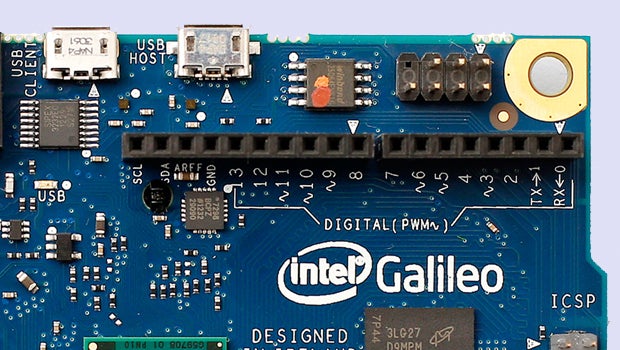Intel launches Galileo board to rival Raspberry Pi

Intel has launched the Arduino-compatible Galileo development board, the first a series of Intel-made Raspberry Pi rivals.
Attempting to cash in on the successes of the Raspberry Pi boards, Intel has announced its own line of development boards, the first named Galileo.
Although Intel has yet to release any pricing details for the Galileo board, the company has confirmed that it is the first in a line of collaborative projects with Arduino.
“We started working on a project three years ago when people came into the company to talk about new innovations round open-source,” said Intel CEO, Brian Krzanich, launching Galileo at the Maker Faire in Rome.
Despite the idea being fairly old, Galileo is actually the result of 60 days of collaboration with Arduino, an open source hardware platform company.
“Intel approached us, they say they wanted to understand how we work. Usually companies like that don’t care about what we’re doing, but with them it was a collaboration,” explained Arduino cofounder Massimo Banzi We’re taking this powerful thing and making it available to a bigger audience.”
Intel has scheduled availability for the Galileo boards for November, but has already donated 50,000 boards to 1,000 universities across the world.
“We want to keep this true to the maker community and culture,” added Krzanich. “It will continue to be open-source, we’ll post all the schematics and software online so people can go in and modify this. We won’t protect this or hold it back in any way – we will learn from you. Think of this as an opportunity to build this yourself, all the way down to the silicon.”
In the future, Intel and Arduino will include connectivity options on the Galileo silicon like Wi-Fi, but the two companies are already working on a second-generation version of the board.
Compatible with Windows, Mac OS and Linux, the software of Galileo also has support for the ARduino shield ecosystem.
It comes with a single-core 32-bit, 400MHz Quark SoC X1000 processor, supports 3.3 or 5 volt shields and has an Ethernet and USB port.
Next, take a look at 10 of the best Raspberry Pi projects.
Via: Wired

